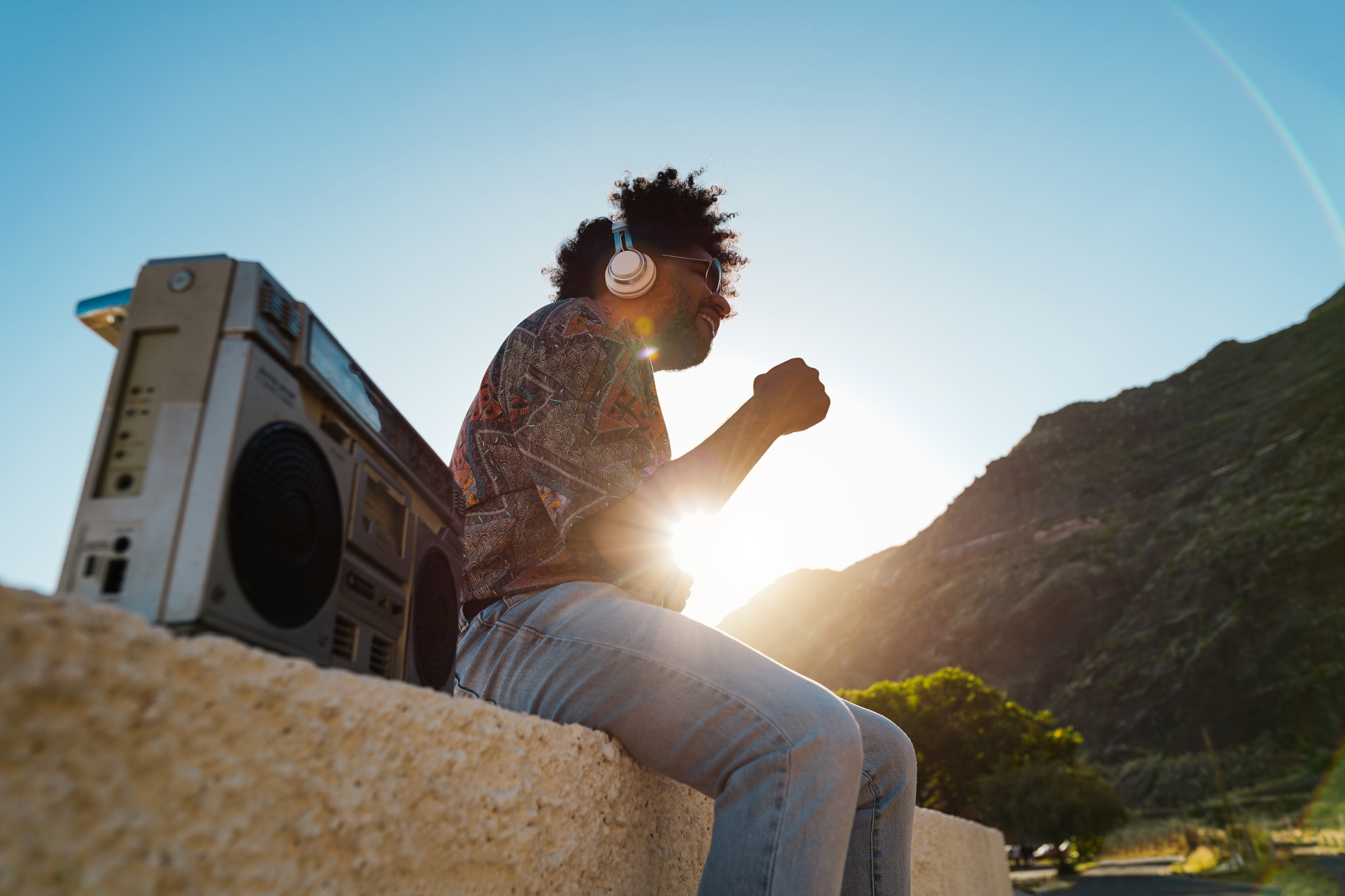The Best of Cameroon Music
The Best of Cameroon Music
Cameroon, a culturally rich country in Central Africa, is globally recognized for its fascinating music scene. Cameroon music is a harmonious blend of diverse styles, reflecting a unique combination of traditional and modern dynamics. This article aims to provide a detailed overview of Cameroon music, its origins, history, the various types, and the current industry trends.
Cameroon music's origin is rooted in the nation's vibrant and diverse ethnic history. The indigenous people of Cameroon played a pivotal role in defining the early elements of what's now known as Cameroon music. Their rhythmic chants and instrumentation laid the foundation for a dynamic musical culture, long before influences from Arab, European, and neighboring African cultures added to its richness.

Understanding the history of Cameroon music means appreciating its traditional folk music. Often vocalistic, this indigenous form of music utilizes a variety of instruments such as drums, percussion, bells, and rattles, attesting to its existence before the pre-colonial era. It's through these original sounds that the distinctive essence of Cameroon music was born.
Cameroon music underwent a significant transformation in the 19th century when European missionaries made their mark. The missionaries introduced Western tonal structures, which, when combined with traditional Cameroonian folk music, led to the development of a new genre, "makossa." This fusion of jazz, highlife, and soul with folk music placed Cameroon music on the international map.
The growth of Cameroon music burgeoned between the 1920s and the 1950s, accelerated by the expansion of radio technology. This era marked the infusion of American, Latin, and Caribbean sounds, with local bands skillfully blending these foreign elements with indigenous rhythms to create a new musical landscape.
Makossa, a fundamental genre in Cameroon music, became internationally celebrated in the 1980s. Manu Dibango's hit "Soul Makossa," with catchy brass melodies and a driving bass rhythm, propelled makossa into global recognition. Today, makossa remains a cornerstone of the Cameroonian music industry.
Another genre worth noting is "Bikutsi." This energetic dance music, recognized for its fast-tempo accordion-lead tunes, originates from the Beti community. The lyrics often tackle social issues, making it an appealing medium for urban expression. The rhythm, created by wooden sticks, adds a unique layer to this genre.
Two popular music styles from the English-speaking regions of Cameroon, "BenSkin" and "Bottle Dance," deserve recognition. These lively dance genres are fixtures at cultural celebrations, demonstrating the integral role music plays in Cameroonian festive activities.
"Coupe Decale," a genre introduced by the French-speaking regions of Cameroon, brings a distinct flavor to the Cameroon music scene. Known for its fast-paced, catchy tracks designed to energize crowds, the genre is marked by humorous lyrics and expressive dance routines that are a hit in clubs and dancehalls.
As time progressed, Cameroon music saw a continual evolution with an expansion of global influence. This trend can be attributed to the rise of young talents who are constantly pushing the envelope by integrating new and innovative elements into the Cameroonian soundscape.
Cameroonian rapper Stanley Enow, Afropop singer-songwriter Salatiel, and innovative vocalist Daphne are prime examples of artists who have brought freshness and modernity to Cameroon music. By incorporating elements of rap, RnB, reggae, and pop into their tracks, these artists have amplified the global appeal of Cameroon music.
The continuous growth of Cameroon music hinges on technological advancements. The digital era has made music distribution easier, enabling Cameroon music to find new audiences globally. Despite challenges such as music piracy and a lack of robust institutional support, the music scene in Cameroon thrives, undeterred.
Music is intrinsic to the daily life of the Cameroonian people, serving a vital role in communal and individual expressions. From serving as a platform for social commentary to tying into the nation’s cultural, political, and social fabric, music lies at the heart of the Cameroonian identity.
In the domain of religion, music is used as a medium of worship. In the political realm, it serves as a tool for sensitizing the public on political matters, especially during election campaigns. Music has also become an outlet for activists to voice their dissent against perceived societal injustices.
As rich as its history is, the present and future of Cameroon music hold even more promise. In today's context, Cameroon music is a delightful mixture of modern and traditional. Current trends show a shift towards merging local rhythms with international genres, creating a uniquely Cameroonian sound with universal appeal.
This discussion on Cameroon music aims to not only deliver knowledge but also evoke emotions that give a deeper understanding of how Cameroonians connect with music. The richness of the lyrics often mirrors the sentiments of the common folk, communicating everyday struggles, victories, and hopes.
Cameroon music, with its emotional resonance, provides a voice for the people. Its power often transcends language barriers, connecting people across different ethnic, socio-economic, and demographic backgrounds to their roots.
Preserving traditional music forms, like "Bantu," has become a priority amidst the threats of modern-day globalization. Despite these challenges, traditional music continues to be a cherished part of the cultural tapestry of Cameroon.
Modern-day Cameroon music also plays an educational role. Many songs address key social issues, spreading awareness on vital topics such as gender equality, human rights, and public health.
The ability of Cameroon music to enlighten and empower its listeners speaks volumes about its cultural significance. Whether it's makossa, bikutsi, or benskin, each genre articulates the resilience and creativity of the Cameroonian people.
Music festivals and competitions in Cameroon are on the rise, reflecting the deep appreciation of music in national life. These events provide a platform for budding artists and promote the diversity of Cameroon music.
The future of Cameroon music looks bright, thanks to the emergence of new talents consistently pushing creative boundaries. In addition, international collaborations with artists from other countries also contribute to placing Cameroon music on the global stage.
The Best of Cameroon Music

The Best of Cameroon Music - Conclusion
In conclusion, a Cameroon music review reveals how an amalgamation of diverse influences and styles creates a unique sound. The music of Cameroon is deeply intertwined with the pulse of the country, mirroring its history, culture, and society.
Cameroon music's transition from its traditional roots to its modern influences attests to a dynamic, rich, and evolving music scene. It is an essential form of expression for Cameroonians, channeling their joys, sorrows, and hopes.
Whether in lively dancehalls or quiet homes, Cameroonian music continues to soothe, inspire, entertain, and ultimately forge unity among its people. The spirit and resilience of the Cameroonian people are unmistakably embodied in the history and essence of Cameroon music.
Indeed, the music of Cameroon has made its mark, both domestically and internationally. Much of Cameroon's cultural understanding can be discovered and appreciated through the exploration of its music. This general overview provides a stepping stone for a deeper appreciation and exploration of Cameroon music.
It's notable how deeply Cameroonians feel and connect with their music, which resonates with the sentiments of the people - their struggles, victories, and hopes. Going forward, the continuous growth, resilience, and dynamism are sure to keep Cameroon music a vibrant and influential player in the global music scene.

Click Here for Further Reading.
Click Here to Leave The Best of Cameroon Music to our Home page